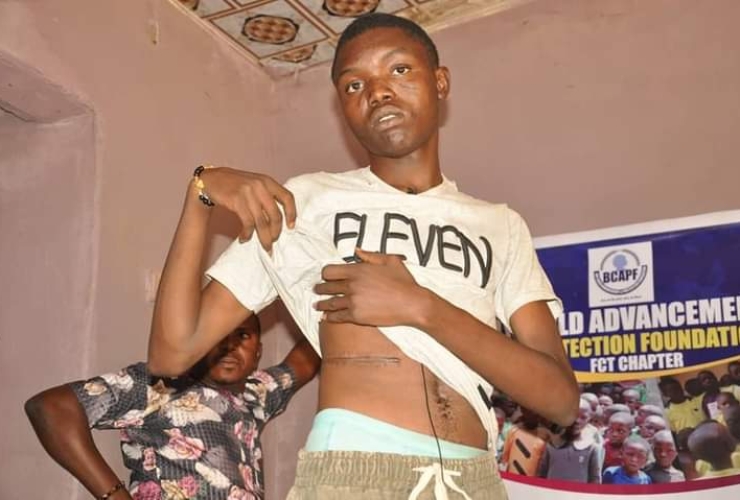KIDNEY HARVEST: The Real Insight into Kidney Harvest Stories in Abuja Nigeria.
Watch https://youtu.be/9lqsYJb0TvY?si=Zo-ZAIxF08qqfmTr
Kidney trafficking and illegal organ harvesting have become disturbing issues in Africa, impacting vulnerable populations, especially young boys. This article explores a recent case, highlighted by the Boy Child Advancement and Protection Foundation (BCAPF), that sheds light on the exploitative practices targeting these boys in Nigeria. BCAPF’s investigation reveals both the mechanics of these trafficking networks and the lives devastated by them.
The Dark Reality of Kidney Trafficking in Nigeria
A community in Maraba, on the outskirts of Nigeria’s federal capital territory, has been plagued by illegal kidney trade. BCAPF, a nonprofit organization dedicated to the protection and advancement of boys, recently uncovered the harrowing accounts of young victims who had been deceived into selling their kidneys. This dark trade thrives due to poverty, lack of awareness, and deceptive recruitment practices that prey on the hopes of economically disadvantaged youth.
Deception and Manipulation of Young Victims
One of the victims, Oluwatobi Salahudeen, a 16-year-old boy, shared his traumatic experience with BCAPF. Oluwatobi was promised a job by a friend who introduced him to an agent associated with this organ trade. The job offer led him to a supposed work venue, where he was instructed to sign documents he did not understand. Under the guise of hiring him as a security guard, he was taken to a Hospital in Abuja’s Garki area, where he was subjected to medical procedures he did not consent to. Oluwatobi’s experience reveals the extent of deception and manipulation that traffickers employ to exploit vulnerable youth.
The Nightmare Continues: Threats and Fear for Survival
After undergoing the procedure, Oluwatobi was coerced into staying in a hotel. BCAPF found that the syndicate paid for their accommodations to keep them hidden from their families, ensuring secrecy around their operations. Oluwatobi, shared that during his stay, he began receiving threatening calls, instructing him to leave Abuja or face death. These intimidation tactics aim to prevent victims from seeking help or exposing the traffickers’ operations.
Family Struggles to Seek Justice
The families of the victims, including Oluwatobi and Yaya, another 17-year-old, have been tirelessly seeking justice for the crimes committed against their children. Despite reporting the incidents to security agencies and media outlets, the case remains unresolved. Oluwatobi’s father recounted how he sought legal help, approached the police, and presented his case to the Commissioner of Police (CP) in Abuja. He described the CP’s horror upon learning about his son’s ordeal, further underlining the system’s failure to protect these young boys.
A Call for Justice and Global Action
Ambassador Uche Ekpere Paul, representing BCAPF, has called upon the Nigerian government and international organizations to address this growing crisis. He demands immediate action to hold hospitals and individuals accountable, advocating for the arrest and prosecution of those involved in illegal organ harvesting. BCAPF’s findings indicate that many of these victims are as young as 16, highlighting the urgent need for systemic reform to protect Africa’s youth.
Conclusion: Advocating for the Boy Child’s Safety and Rights
The story of Oluwatobi, Yaya, and countless other young boys exploited in the kidney trafficking trade is a heartbreaking reminder of the vulnerabilities these children face. BCAPF’s dedication to bringing awareness to these crimes is vital in ensuring that such tragedies are prevented in the future.
Article by: Isaac Adeola Moses

